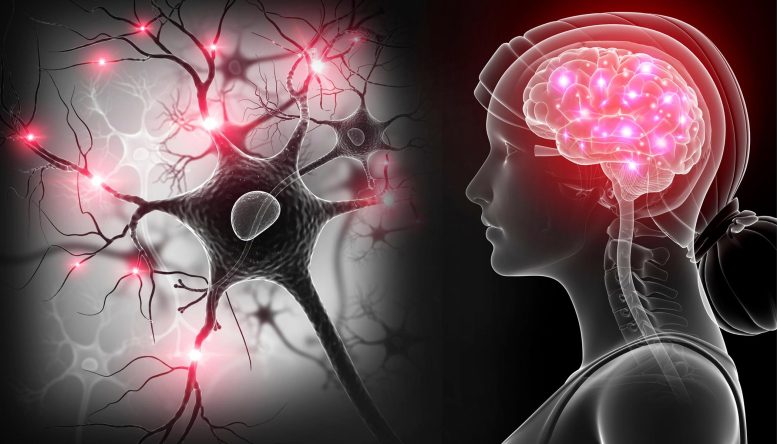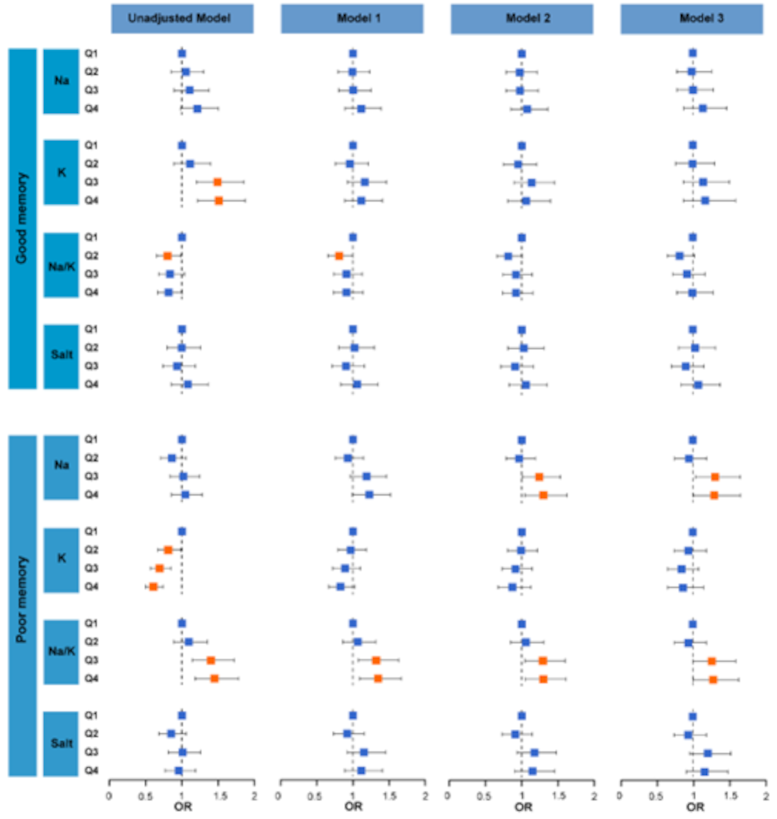
Dementia is a debilitating condition that affects a person’s ability to remember, think, and make decisions, making it difficult for them to perform everyday activities. It has become one of the leading causes of death and disability among the elderly worldwide. In China, which has both the largest elderly population and one of the fastest-aging populations, dementia poses significant economic, health, and social challenges.
Since dementia is irreversible and effective treatments are limited, preventing and detecting cognitive decline early on is crucial. Studies have shown that certain lifestyle factors such as physical activity, diet, and sleep can affect cognitive function. However, the impact of dietary sodium and potassium on cognitive function remains poorly understood.
In a prospective study published in the KeAi journal Global Transitions, a group of researchers from China looked at the impact of dietary sodium, potassium, sodium to potassium ratio, and salt on the cognitive function of a group of elderly people in China. Participants numbered 4,213 and were aged at least 50 years at baseline. Results are based on cognitive tests and participants’ self-reporting.

The research team found that a high intake of sodium (> 5593.2 mg/day) and a high sodium-to-potassium ratio (> 3.8/day) increased the risk of memory impairment in the elderly. Conversely, higher levels of potassium intake (> 1653.3 mg/day) were associated with a higher cognitive score; the average cognitive test score (13.44 at baseline, total score was 27.00) increased by ~1 point when 1000 mg/day of sodium was replaced with an equal intake of potassium.
In addition, the researchers built on previous studies by demonstrating that the effects of dietary sodium, sodium to potassium ratio, and potassium on cognitive function have the potential to be mediated by cardiovascular and cerebrovascular disease (CCVD), while the link between salt and cognitive function can be mediated by sleep.
Although China has attempted to restrict salt and sodium in people’s diets for over a decade, the population’s intake remains alarmingly high, outstripping many other countries and the World Health Organization’s recommendation of a maximum of 1400 mg/day of sodium for people aged 50—79 years and 5 g/day of salt. This high salt intake is commonly accompanied by insufficient consumption of potassium (1499.0 mg/day in this study vs. the Chinese recommended level of 3600 mg/day).
The study’s results also confirm previous findings that dietary sodium to potassium ratio could provide a better measure of how these elements impact cognitive function, than looking at separate sodium or potassium values.
Corresponding author, Ai Zhao, adds: “Based on our findings, it is reasonable to suggest that decreasing sodium intake, and properly increasing potassium intake, is beneficial to cognitive function. Given our results and the nutritional situation of the Chinese, it will be important for future studies to focus on determining the optimal ratio of dietary sodium and potassium in the elderly. In addition, the development of strategies to improve the sodium-to-potassium ratio in Chinese diets should be a priority.”
Reference: “Association of dietary sodium, potassium, sodium/potassium, and salt with objective and subjective cognitive function among the elderly in China: A prospective cohort study” by Xiaona Na, Menglu Xi, Yiguo Zhou, Jiaqi Yang, Jian Zhang, Yuandi Xi, Yucheng Yang, Haibing Yang and Ai Zhao, 3 November 2022, Global Transitions.
DOI: 10.1016/j.glt.2022.10.002
The study was funded by the Sanming Project of Medicine.
1 Comment
Useful article!